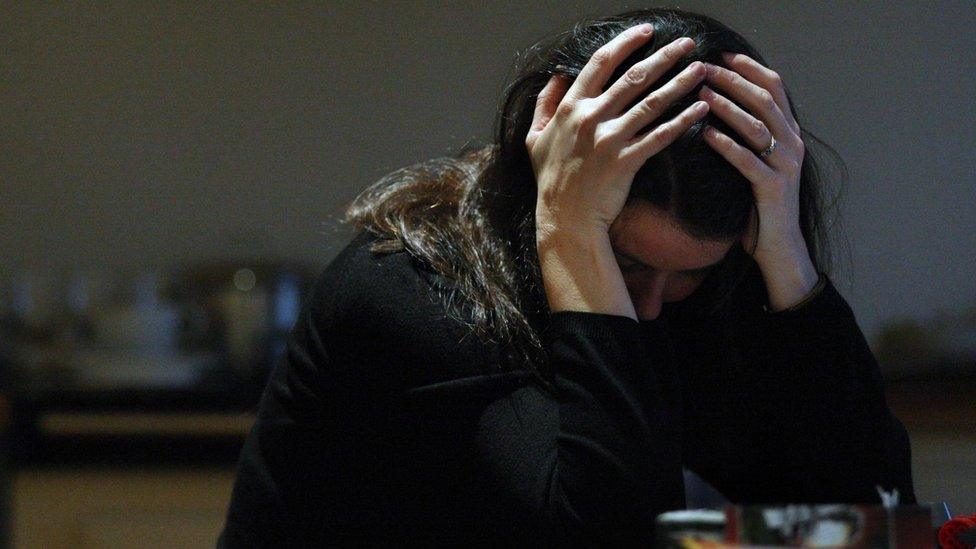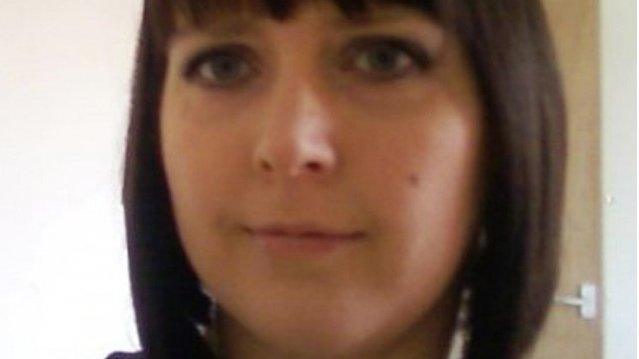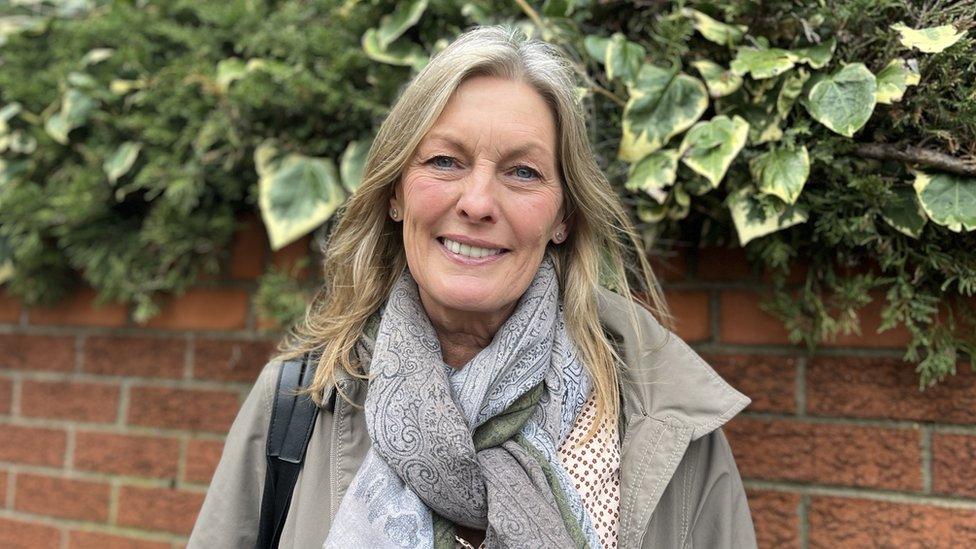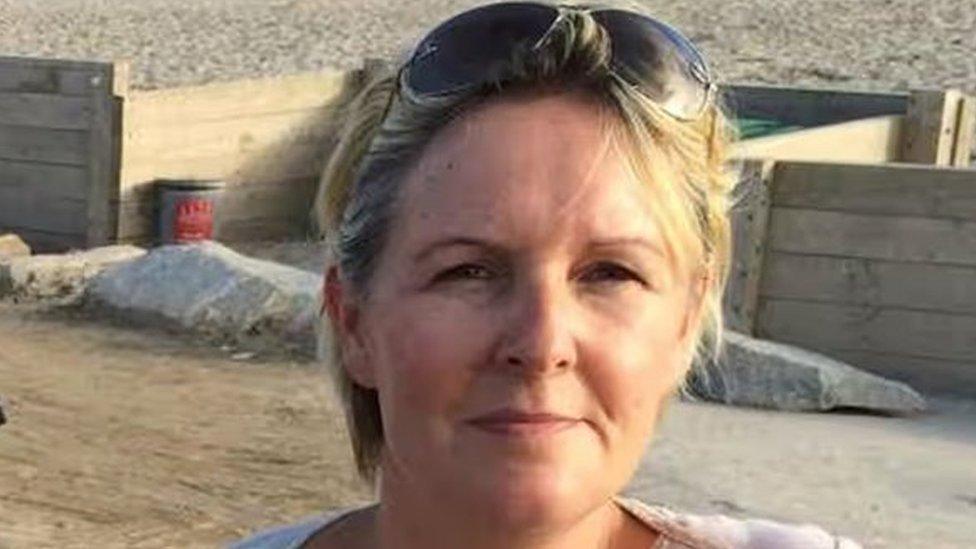Applications for Clare's law doubled in last year in Devon and Cornwall
- Published

The number of applications made under Clare's law, rose from 228 in 2018, to 838 in 2023.
The number of people in the South West asking the police if their partner has a violent criminal history each year has more than doubled since 2020.
In 2023, Devon and Cornwall Police had 838 applications under Clare's Law legislation, compared to 389 in 2020.
The law allows people to ask police about a partner's previous violent criminal past, and permits forces to proactively disclose information.
Devon and Cornwall Police said the increase was "a positive".
In the two counties, the police said the number of applications made under Clare's law has risen each year since the numbers were first recorded in 2014.
The number of applications was 228 in 2018, 316 in 2019, 389 in 2020, 445 in 2021, 484 in 2022 and 838 in 2023.
Det Ch Supt Sheon Sturland said: "Domestic abuse accounts for almost one in five crimes… and we see a huge number of victims every week.
"There has been an increase in the 'Right to Ask' applications made under Clare's Law, which have doubled since 2022.
"We see this as a positive, as more people are understanding the risk their partners may pose."
Citizens Advice in Cornwall welcomed the increase, but said more needs to be done to understand the dynamics of an abusive relationship, and some victims aren't getting the information they need to make informed decisions.
'Violence escalated'
One woman, Esme (not her real name), said she applied for information but was refused because her application did not meet the Home Office's criteria.
After a few months of a relationship, her partner turned violent but he repeatedly persuaded her to welcome him back.
She said: "Once I returned the violence escalated. Mental abuse, physical abuse, financial abuse, and there were other violent incidents that were much more serious."
Esme discovered he was taking drugs and seeing other women and said: "I was too ready to accept explanations - too ready to believe him."
Not long after the last time she left him a year ago, Esme applied online to Devon and Cornwall Police for Clare's Law but was informed that as she had already left him, knew he was violent, the criteria set out by the Home Office was not met and she couldn't be given any information.
She believes information about his past would be helpful as it would indicate how he may have treated other former partners.
"I know in my heart that he will try to carry out the threats he's made to me.
"After I went to the police, he told me what he would do to me. I live in fear, of not knowing just how violent he has been in the past with previous partners, and of how much I need to fear him - for the rest of my life."
Clare's Law was introduced in 2014 after a campaign by the father of Clare Wood, 36, who was strangled and set on fire by George Appleton in 2009.
The first part of the legislation involves 'the right to ask' that enables someone to request information from the police about a partner's previous history.
The second part is 'the right to know' that allows police the freedom to proactively disclose any of the information they may have become aware about when a perpetrator has a new partner, and a history of domestic violence and violent acts.
Victims of crime coordinator at Citizen's Advice Cornwall, Allison Livingstone said: "We've been told by clients that they get asked, 'you know that he or she's violent so why do you need to make a Clare's Law request?'.
"I think it's important to remember victims have often endured months, years, decades of being told by the perpetrator they are the problem… actually hearing through a Clare's Law request that this isn't the first time this person has a history of violence, I think that's an important step into understanding that 'I'm not the problem here, I am not responsible for the violence that being dished out to me.'"
A recent BBC investigation found some people who asked for a background check on their partner had been waiting hundreds of days for a response.
Det Chf Supt Sturland said: "We take domestic abuse extremely seriously with the Clare's Law scheme forming part of officer initial training. Each application we receive is reviewed by a police sergeant which is then allocated to specialist Domestic Abuse Officers for their review.
"When we are considering a request via the scheme, we adhere to a strict legal framework, and a number of clear conditions must be met before a disclosure can be made."
He added: "Not everyone who applies for information via this scheme is entitled to receive a disclosure."
The force has about 35 specially trained domestic abuse officers, including four sergeants in specialist teams covering five different geographical areas.
The Home Office said in a statement: "Clare's Law is an important tool designed to keep people safe and guidance is clear that police should consider each request on its own merits and can seek their own legal advice if needed.
"We remain dedicated to supporting victims of domestic abuse, including through the Domestic Violence Disclosure Scheme, which enables the police to disclose information to a victim or potential victim of domestic abuse about their partner's or ex partner's previous abusive or violent offending."
Anyone needing to make a request for a disclosure under Clare's Law can do so by visiting the Devon and Cornwall police website.

Follow BBC Cornwall on X (formerly Twitter), external, Facebook, external and Instagram, external. Follow BBC Devon on X (formerly Twitter), external, Facebook, external and Instagram, external. Send your story ideas to spotlight@bbc.co.uk, external.
Related topics
- Published8 March 2014

- Published7 March 2024
- Published7 March 2024

- Published26 March 2024
